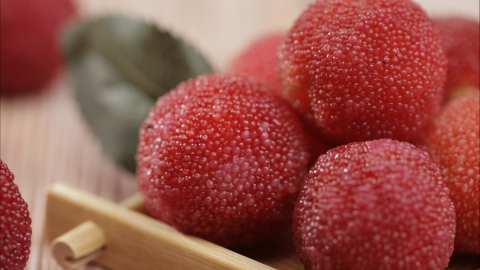Can patients with gastroenteritis eat waxberries?
Generally, patients in the recovery phase of acute gastroenteritis may cautiously consume small amounts of bayberry (Myrica rubra), while patients with chronic gastroenteritis should consume it with caution. Detailed explanations are as follows:

During the acute phase of gastroenteritis, the gastrointestinal mucosa is in a pathological state characterized by congestion, edema, and inflammatory exudation, with severely impaired digestive function. Bayberries contain abundant organic acids, such as citric acid and malic acid. These organic acids can stimulate excessive secretion of gastric acid. Excessive gastric acid secretion further aggravates mucosal damage in the gastrointestinal tract, leading to worsened symptoms such as stomach pain, bloating, and acid reflux. It may also delay mucosal healing and hinder recovery.
When acute gastroenteritis enters the recovery phase, the inflammation in the gastrointestinal mucosa gradually subsides, and digestive function begins to recover gradually. Patients may cautiously consume small amounts of bayberry. The organic acids in a small quantity of bayberry have relatively mild stimulatory effects and will not impose excessive burden on the gastrointestinal tract. Moreover, bayberries are rich in nutrients such as vitamin C and B-complex vitamins; moderate intake helps enhance immune function and promote recovery. However, patients should closely monitor their physical response after consumption. If symptoms such as abdominal pain, diarrhea, or nausea occur, consumption should be stopped immediately.
Patients with chronic gastroenteritis have long-standing chronic inflammation of the gastrointestinal mucosa and relatively weakened digestive function. The organic acids in bayberries may stimulate gastric acid secretion, potentially causing excessive gastric acid production and worsening symptoms such as stomach pain and burning sensations. Therefore, patients with chronic gastroenteritis should be cautious when consuming bayberries. If consumption is desired, it should be done when the condition is relatively stable, with strict control over the quantity. Consumption on an empty stomach should be avoided; instead, a small amount may be consumed half an hour after meals to reduce gastrointestinal irritation.










